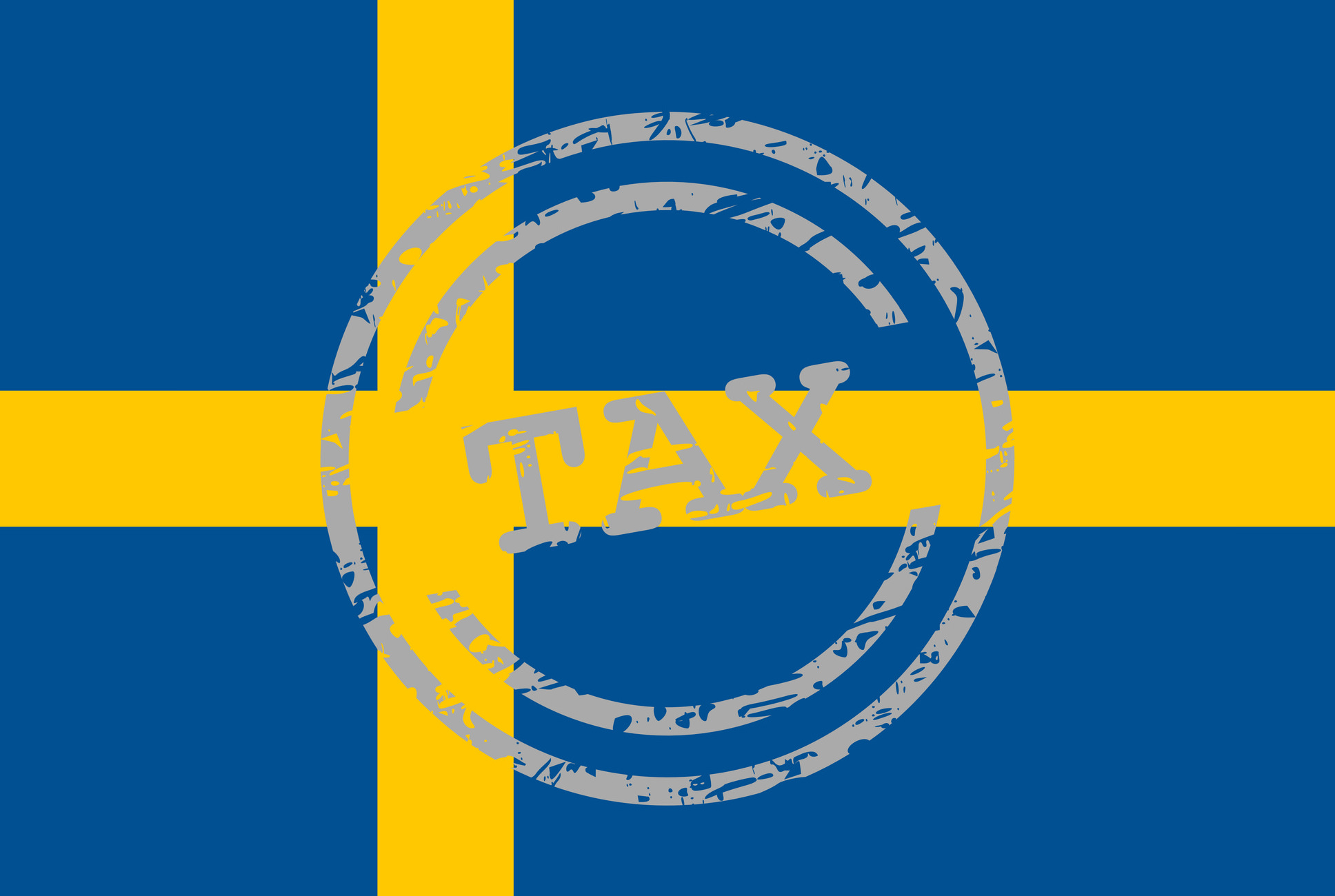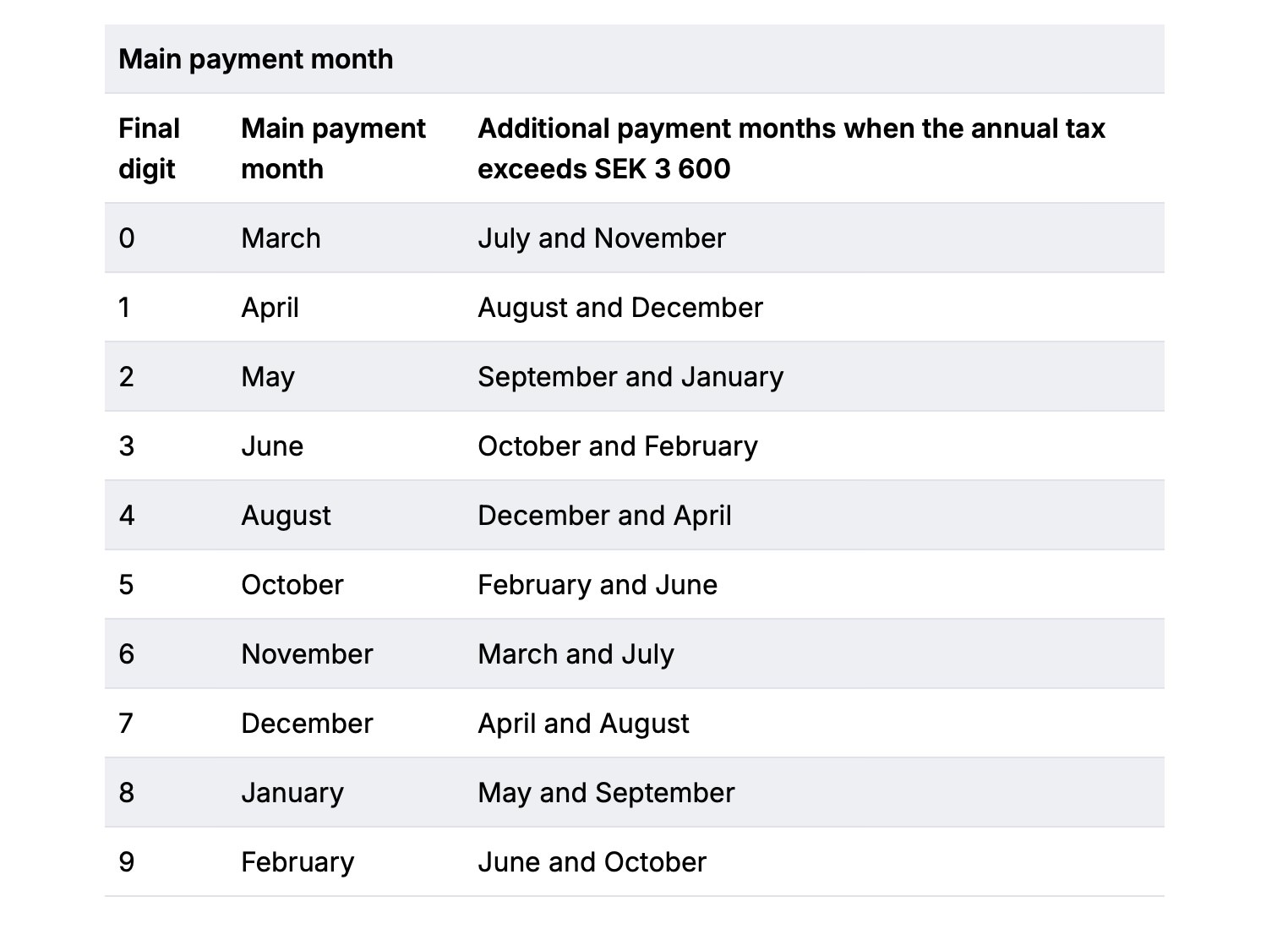- Blog
- Car Taxes in Sweden - Guide for Car Dealers
Car Taxes in Sweden - Guide for Car Dealers
Importing or selling cars in Sweden? Plan the costs and see what car taxes apply, from the yearly vehicle tax and malus surcharge, to type approval for non-EU imports and more.

If you’re running a car dealership or trading used vehicles, understanding how car taxes in Sweden work is highly important for planning your deals and pricing.
Whether you’re calculating vehicle tax in Sweden or checking which taxes apply to imported cars, these costs can make a big difference to how attractive your cars are to buyers. Also, knowing the rules helps you stay compliant during Swedish car registration and when reselling cars.
To help you out, we’ll explain every motor tax in Sweden so that you can plan your imports, set realistic prices, and give buyers clear answers about car costs.
List of all vehicle taxes in Sweden
We’ll start with a brief overview of car taxes, and you’ll find more detailed descriptions below.
|
Tax type |
What it covers |
How it’s calculated |
|
Vehicle tax |
Yearly tax for vehicles registered in Sweden |
Based on vehicle type, weight, fuel, emissions, age |
|
Malus (high-emission surcharge) |
Extra tax for cars with high emissions, first 3 years |
Amount rises with CO₂ emissions |
|
Congestion tax (Stockholm/Gothenburg) |
Tax for entering central city zones |
Varies by zone |
|
Bridge tolls |
Vehicles crossing certain tolled bridges and tunnels |
Fixed toll per crossing, typically around 5 SEK for cars |
|
Tolls for heavy vehicles |
Vehicles with a total weight of 12 tonnes or more |
Depends on number of axles, emission class, and duration (daily, weekly, monthly, yearly) |
|
VAT for non-EU imports |
Vehicles imported from outside the EU |
25% on customs value |
|
Type approval for non-EU imports |
Vehicles imported from outside the EU |
3,400 SEK + 1,7000 SEK/hour for processing and inspection |
Motor taxes in Sweden explained
Now, let’s see what each of these car taxes in Sweden means in practice.
► Vehicle tax
Vehicle tax (Car tax) is the annual tax charged on every vehicle registered for road use in Sweden. It varies depending on factors like the vehicle’s weight, fuel type, CO₂ emissions, and age.
This tax is billed once a year, but the payment month depends on the last digit of the vehicle’s registration number, which you can see below.

Image source: Transportstyrelsen
For example, if your plate ends in 3, your main payment month is March. Vehicles with higher annual tax (over SEK 3,600) can split the payment into two or three installments during the year.
► Malus (high-emission surcharge)
Sweden uses a malus system to discourage high-emission cars. France has a similar malus.
In Sweden, the malus is an extra charge for newer petrol and diesel cars with higher CO₂ emissions. It applies during the first three years from first registration. The amount increases with emissions.
If you’re a dealer looking to buy a car and resell it, you should always check if the car is still within the malus period, because this affects total ownership cost for buyers and your final pricing.
The malus usually adds about 5,000 to 25,000 SEK per year during the first three years, depending on the car’s CO₂ emissions.
► Congestion taxes in Stockholm and Gothenburg
When a vehicle drives into the central zones of Stockholm or Gothenburg, the driver has to pay a congestion tax. This applies to all vehicles, whether they’re registered in Sweden or outside.
Rates vary by time of day: typically 9–45 SEK per passage, with a daily maximum of 135 SEK in Stockholm and 60 SEK in Gothenburg.
If you’re selling cars to buyers in those cities, or buyers who are likely to drive there, you could mention the potential monthly passing costs to help them plan their budget better.
► Bridge tolls (infrastructure charges)
Some bridges and tunnels in Sweden carry fixed tolls when vehicles cross them, all of which is part of infrastructure charges.
Bridge tolls in Sweden are much lower than congestion taxes. For most crossings, the fee is usually between 5 and 20 SEK per passage for passenger cars.
► Tolls for heavy vehicles (Road user charges)
This charge applies to heavy trucks weighing over 12 tonnes using Swedish roads, and it falls under the “Eurovignette” style road-user charging system.
The fee depends on how many axles the vehicle has, its emission class (Euro standard) and how long it will use Swedish roads (daily/weekly/monthly/yearly).
For example, the price of a one-week vignette ranges from about €50 to €84, depending on the truck’s axles and emission class. For a one-month vignette, the cost is typically between €143 and €240.
If your dealership specializes in heavy vehicles, it might be helpful to know these rates so you can advise your buyers about the costs.
► VAT for non-EU imports
If you’re importing a used vehicle from outside the EU, you’ll also need to plan for the VAT payment at Sweden’s standard rate of 25%.
The VAT is calculated on the customs value (purchase price + shipping + insurance).
► Type approval for non-EU imports
Likewise, if you bring in a vehicle from outside the EU, it may need national or individual type approval from the Swedish Transport Agency.
This comes with a fixed fee of 3,400 SEK plus 1,700 SEK per hour for testing and inspection.
Tax benefits and incentives for Electric Vehicles in Sweden
Sweden has implemented some measures to encourage the switch to electric vehicles, like many other EU countries have.
Sweden favors electric cars mainly through lower annual tax and no malus. Because EVs have zero CO₂ emissions, they avoid the malus charge. Instead, EVs only pay the basic vehicle tax.
For company cars, EVs and many PHEVs get a reduced taxable benefit, which lowers costs for fleets and business buyers.
If you’re selling EVs, you could highlight these points to buyers in plain language: no malus, a low annual tax, and favorable taxation of company cars.
What will change in 2026?
Sweden’s Ministry of Finance has announced various tax proposals for 2026. While none of them are directly related to car taxes, one important update affects electric vehicles.
Charging an EV at the workplace will remain tax-free, and the exemption is planned to become permanent from 2026. So, that’s another plus for EV buyers.
Tax scenarios for Swedish dealers
Different taxes apply depending on where you buy or sell your cars. Here’s a quick look at what to expect in each situation.
Importing a used vehicle from the EU
If you import a used car from another EU country, you usually don’t pay import duty or customs fees.
You pay Swedish VAT only if the car counts as new under EU rules (under 6 months old or under 6,000 km). This means that intra-EU car trades are the simplest and fastest for Swedish dealers.
Also, you still handle Swedish registration and the annual vehicle tax (and, for newer high-emission petrol/diesel cars, the malus for the first three years).
Importing a used car from a non-EU country
When importing from outside of the EU, you pay customs duty (typically ~10%, depending on origin) and Swedish VAT at 25% on the customs value.
If the car doesn’t have the EU type approval, you should plan for approval fees (about 3,400 SEK + 1,700 SEK/hour) before registration.
Selling used cars domestically
When you sell cars in Sweden, you usually add 25% VAT to the sale price and later pay that VAT to the Swedish Tax Agency (Skatteverket).
If you bought the car without deductible VAT, you can use the margin scheme and pay VAT only on your profit.
Remind buyers that they’ll also need to cover the annual vehicle tax, and possibly the malus for newer high-emission cars.
Buying used cars in Sweden
Check the seller’s VAT scheme on the invoice (standard vs margin) to know if VAT is deductible. After purchase, register the car and plan for the car’s annual vehicle tax. The malus may apply if it’s a newer high-emission model.
FAQ
► How much does it cost to register a car in Sweden?
Registering a can usually costs around 700 SEK. If you import a car from outside the EU and it requires type approval, you’ll pay additional inspection fees (3,400 SEK + 1,700 SEK/hour).
► Do car dealers in Sweden use the VAT margin scheme?
Yes, some used-car dealers apply the VAT margin scheme when buying vehicles without deductible VAT. Under this system, the dealer pays VAT only on their profit margin, not on the full sale price.
► What taxes apply when importing a used car from Germany?
If the car qualifies as used under the EU rules, you don’t pay import duty or Swedish VAT. The taxes that do apply are the Vehicle tax, and for newer high-emission cars, possibly the malus surcharge.
► Do I need a vignette in Sweden?
No, Sweden doesn’t have a vignette system for passenger cars. Instead, there are congestion taxes in Stockholm and Gothenburg, bridge tolls, and road-user charges for heavy vehicles.



